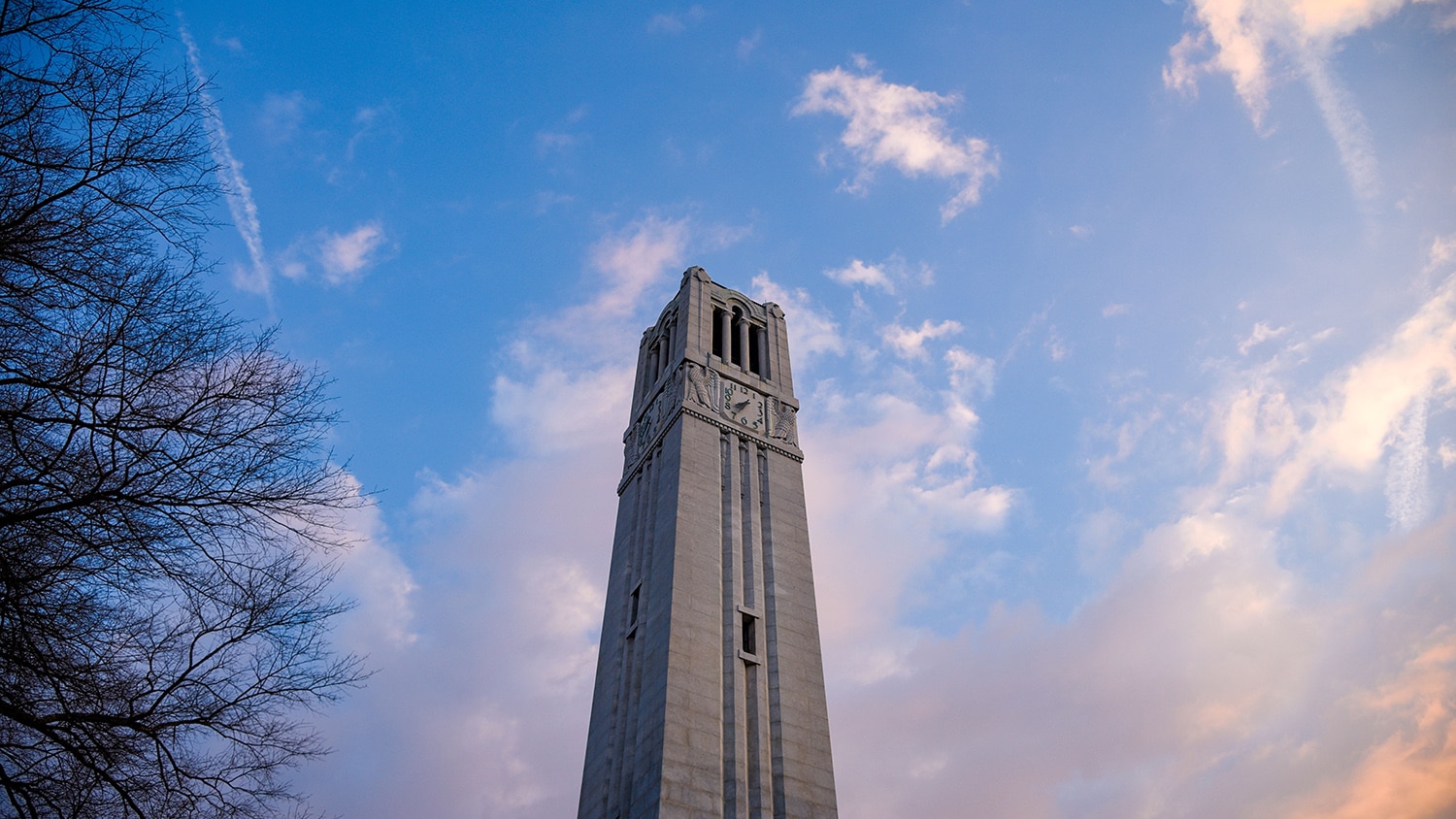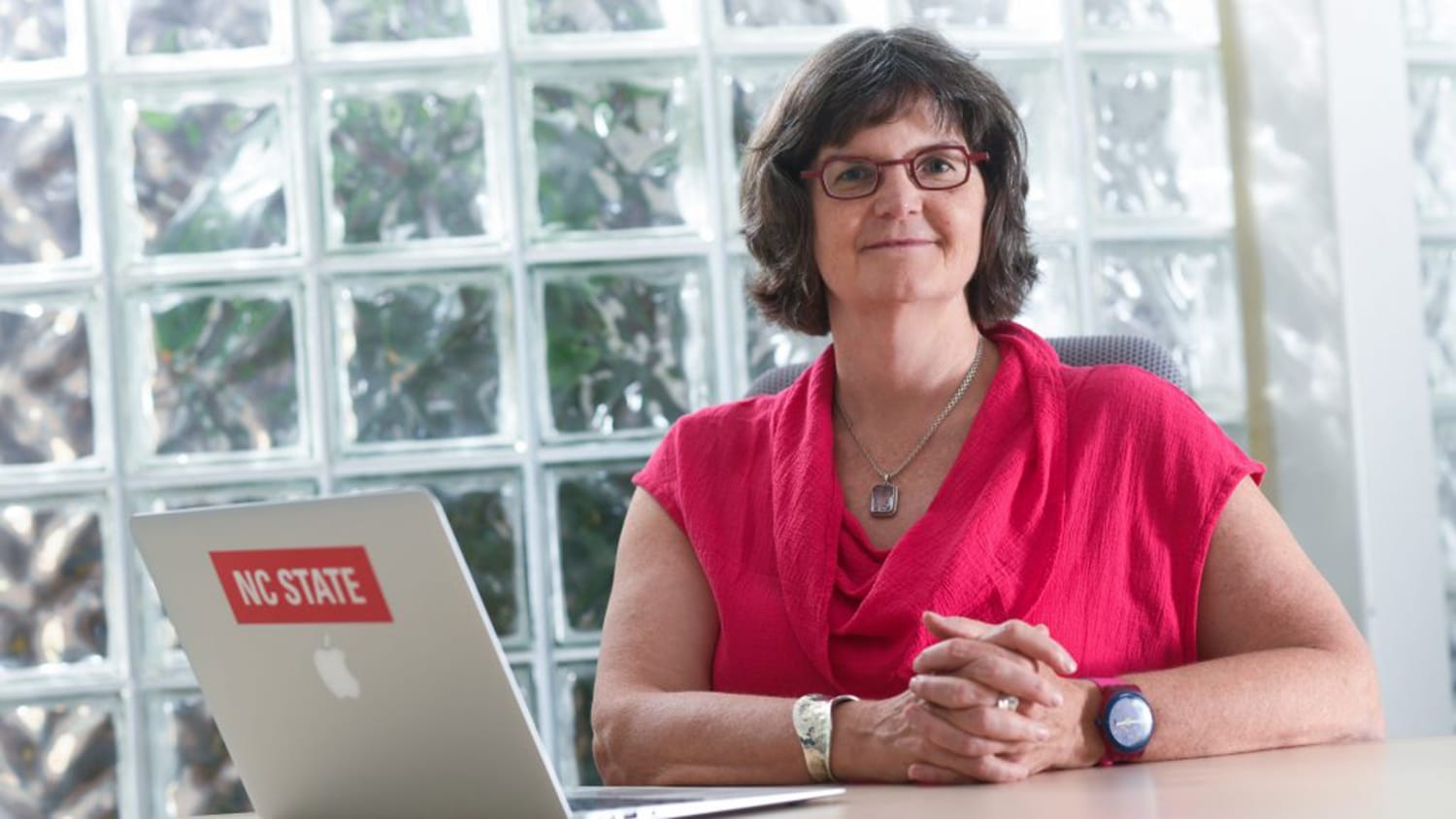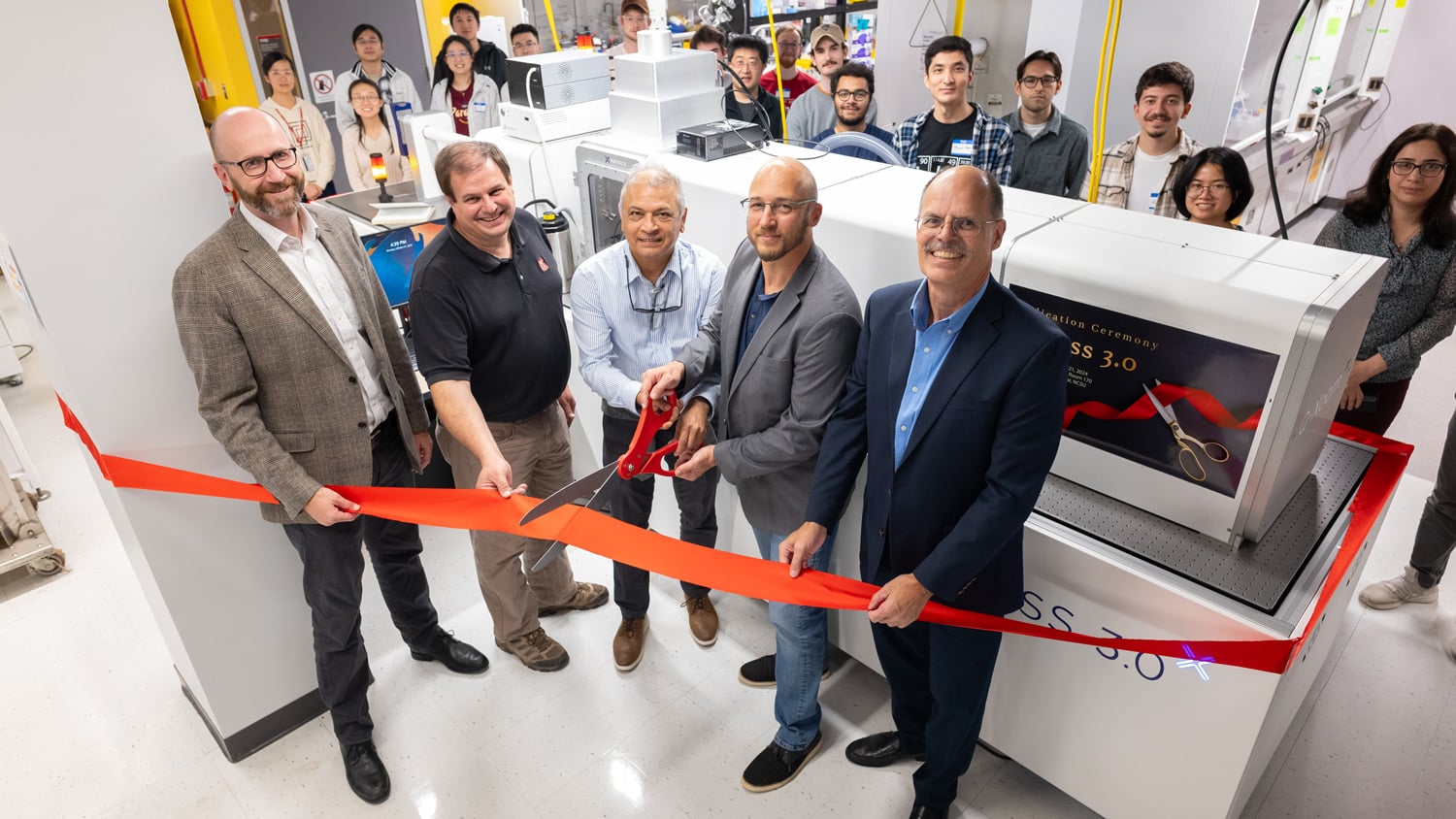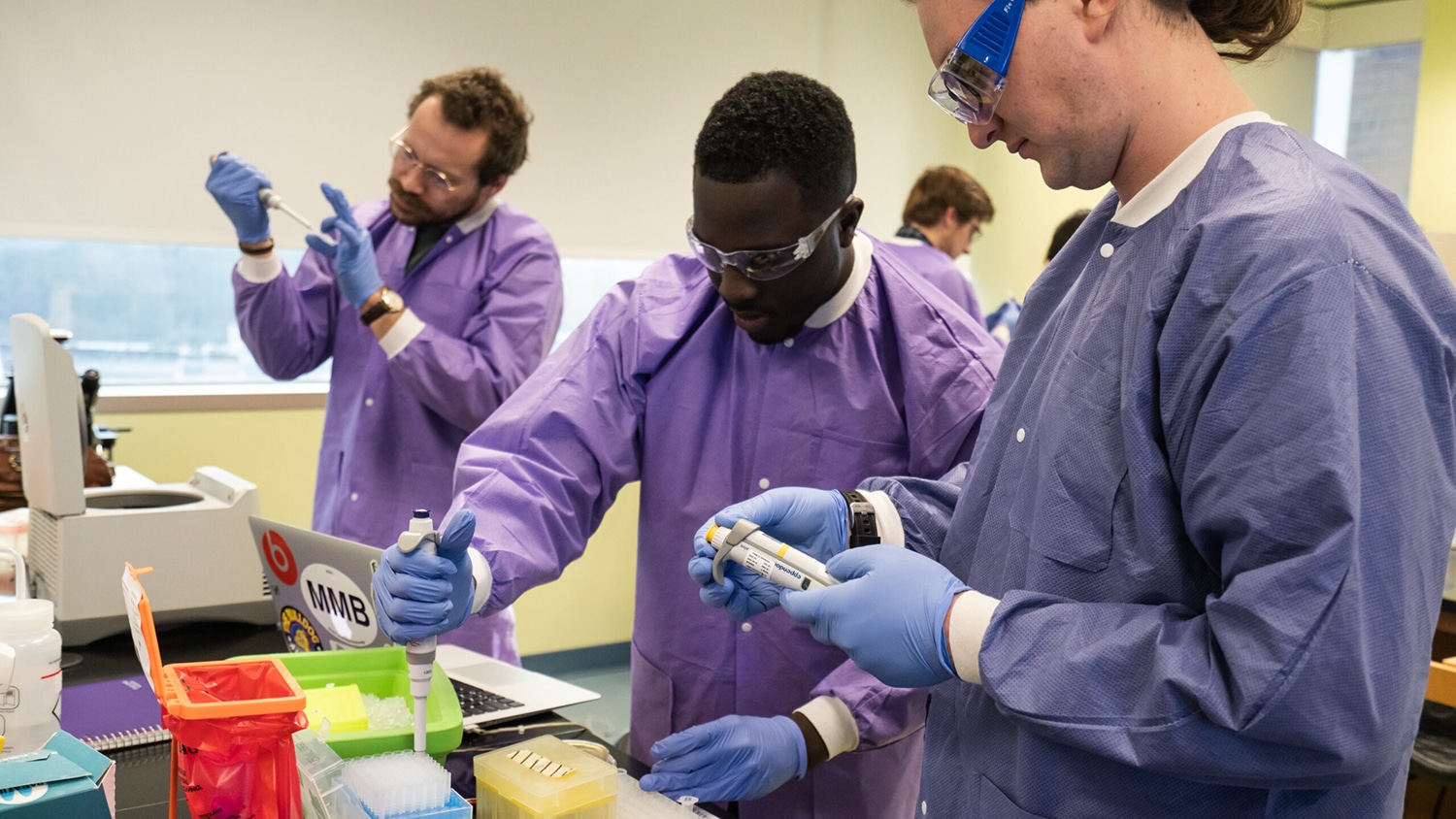Claire Gordy, assistant teaching professor in the Department of Biological Sciences, and Vladimir Skokov, assistant professor in the Department of Physics, have been honored by the College of Sciences with the 2022-23 LeRoy and Elva Martin Award for Teaching Excellence.
The Martin Award recognizes professors’ outstanding contributions to the College of Sciences’ teaching mission. The award was created in 2001 by the late LeRoy Martin Jr., a longtime mathematics professor at NC State, to honor his parents, Elva and LeRoy Martin.
Both Gordy and Skokov have demonstrated a commitment to teaching, engaging students and leaving a positive and lasting impact on students and alumni. Edited excerpts from their nominations are below.
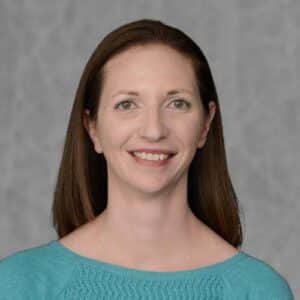
Claire Gordy joined the Department of Biological Sciences in 2016. Her courses have been groundbreaking in their ability to provide students with authentic research experiences in course-based laboratory settings and to generate original research, which many of her students subsequently present at the NC State undergraduate symposia and other venues. Her students consistently praise her for her creativity, passion, accessibility, fairness, patience and ability to inspire them to work hard and think critically. Gordy is also known for her continuous efforts to improve her courses, to introduce technology when beneficial, to provide varied delivery of material to reach all learners, and to improve assessments of student learning and satisfaction.
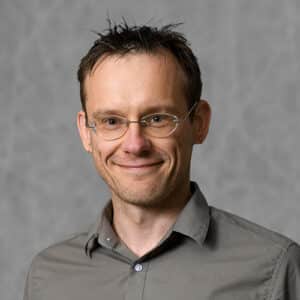
Vladimir Skokov joined the Department of Physics in 2018 and immediately demonstrated that he prioritized student success at all levels. He is known as a fun and interesting teacher who excels at providing helpful examples and being extremely receptive to all kinds of questions outside of class. As he began teaching the advanced Computational Physics course, his developed course materials that were extremely innovative, detailed and helpful to students. One senior faculty member was very impressed that undergraduate students coming out of the class could transition directly into research, and at least one of these students contributed to breakthroughs that were included in published works.
